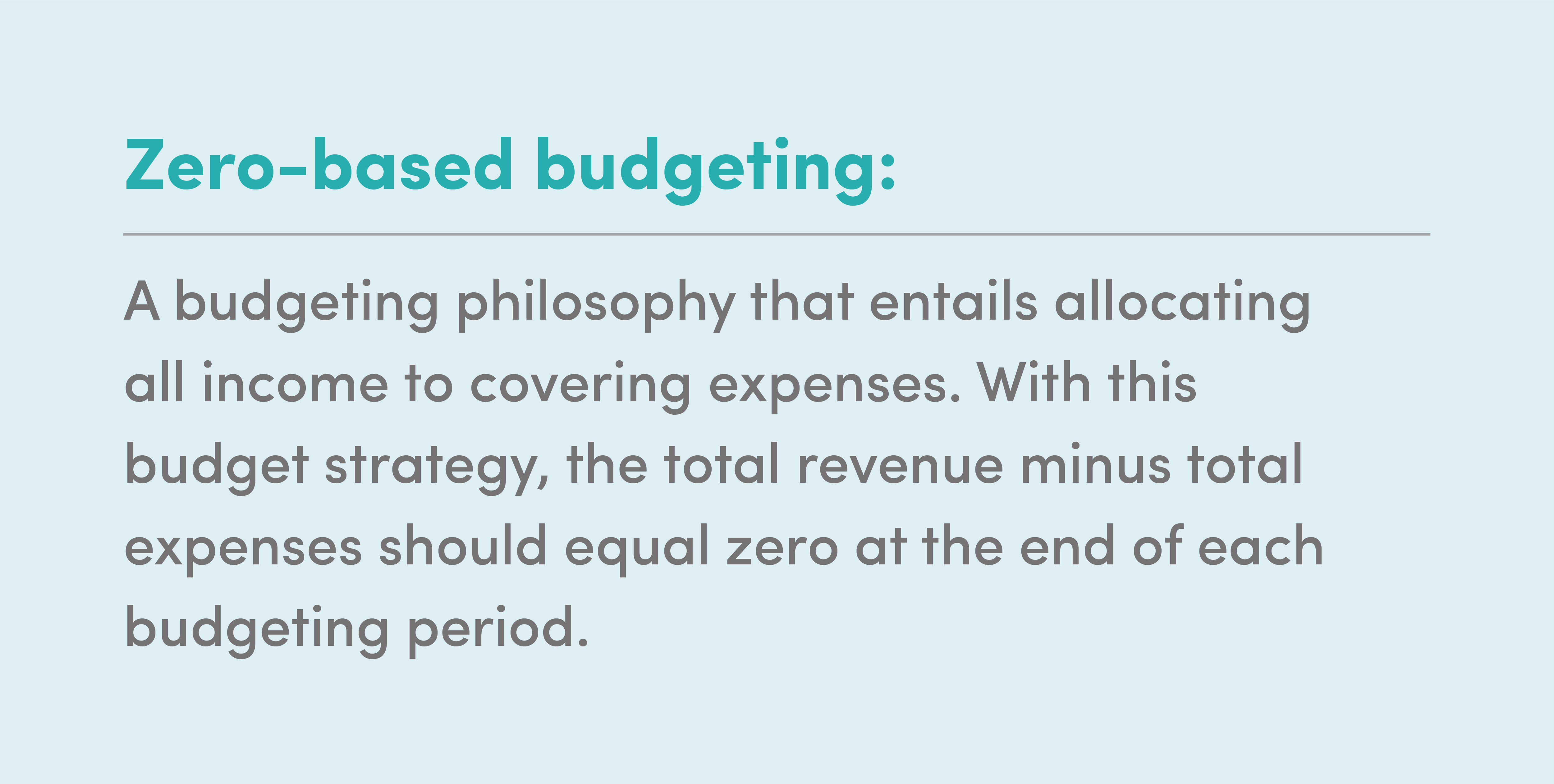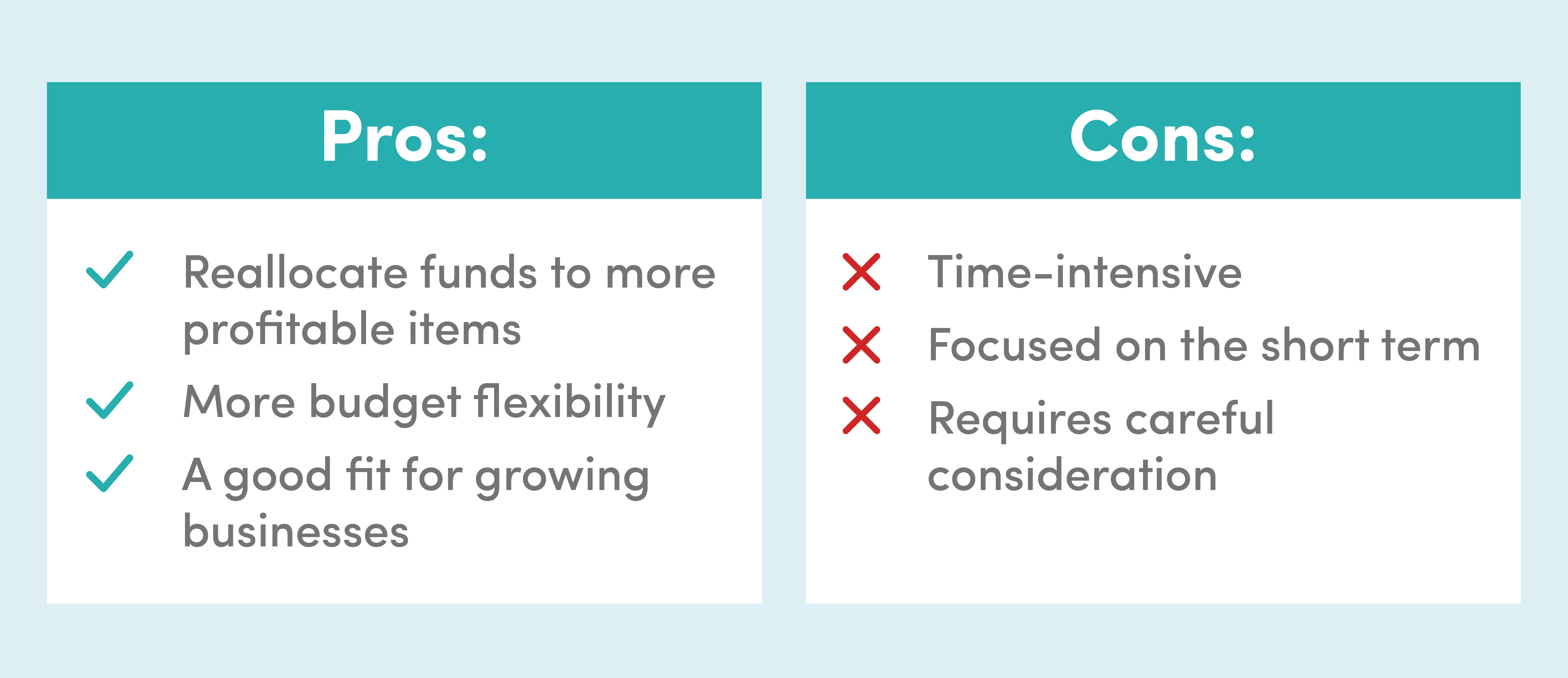Written by: Jacob Dayan
When running a growing business, a common downfall many owners face is cost increases outpacing revenue growth. If left unaddressed, this can lead to a vicious cycle of missing profit targets by increasingly wide margins. If you find your business in this situation—or anticipate it happening in the near future—it may be worth it to give zero-based budgeting a shot.
Zero-based budgeting is a budgeting philosophy that entails allocating precisely 100% of income to covering expenses. The name comes from this philosophy’s core tenet—at the end of each budgeting period, the total revenue minus total expenses should equal zero.
Zero-based budgeting provides an alternative to traditional budgeting, which calls for incremental increases over previous budgets. Traditional budgets, or line item budgets, tend to fall short because it focuses mainly on new expenditures. Zero-based budgeting, however, shifts the paradigm so that you need to justify every single expense with each new budgeting period. The result of this added need for justification is a more informed, less bottom-heavy budget.

There are five fundamental characteristics distinctive to zero-based budgeting:
The reason for using business units instead of departments is because the zero-based budget philosophy emphasizes revenue-generating activities instead of operational departments.
For the sake of example, let’s take a look at a small car rental company. After each rental is returned, the car needs to have its interior cleaned. This company has been contracting this out to a private cleaning company for the past five years.
After implementing the zero-based budget philosophy, the business owner looks at older, recurring spending to trim some fat and hit net zero. After poring over his financial statements, he finds that the contractor has been raising their rate by 3% each year—and at the current rate, it would be cheaper to hire a full-time, in-house cleaner.
This is where zero-based budgeting shines; old expenses such as startup costs tend to fly under the radar when crafting a traditional budget. Over-budgeting is very common, and if previous over-budgeting is not addressed, budget bloat can multiply with each incremental revision.
As previously mentioned, zero-based budgeting provides business owners with the necessary perspective to slash old, unnecessary expenses and reallocate these funds to more profitable items. In addition, zero-based budgeting is conducive to increased budget flexibility as less money stays tied down in the old budget bloat.
Zero-based budgeting is also a natural fit for growing companies. Many business owners find that as their company grows, expenses outpace revenue, and the gap widens as growth continues. A commitment to maintaining a zero-base budget will allow for controlled growth without saddling your business with debt.
Zero-based budgeting isn’t without its share of disadvantages. For example, putting together a zero-based budget is time-intensive and arduous. Without the proper prudence, it can quickly become a recurring time-suck for your accountants.
Additionally, some may argue that a zero-based budget is a shortsighted tool. After all, it is conducive to reallocating funds to currently profitable items. If your business is constantly shifting around its spending to address momentary needs, it may result in inefficiency or even obscure your long-term vision.
Zero-based budgeting also only works if the budget is crafted by those with the business’s best interests at heart. It is possible for somebody to fabricate justification of a pet project in order to over-allocate funds to that project.

Related: Catch-Up Bookkeeping
If you are thinking about implementing zero-based budgeting for your business, you must first weigh whether it is the right move for you at this point in time. Consult with your accountant or consider the following:
If you answer yes to all three, then setting a zero-based budget may be worth a shot. If you are still on the fence, consider building a traditional budget for the time being. If your expenses are larger than your projected revenue—or if you want to spend more on new items than your budget allows—consider going the zero-based route.
After deciding to set a zero-based budget, follow these three steps to prepare yourself for what comes next:
After you have finished, you can begin building your zero-based budget yourself or with the help of a specialized small business or startup accountant.

In today’s tech-focused era, the zero-based budget has experienced something of a rebirth. The proliferation of centralized data repositories for finance has allowed for greater transparency during budget negotiations. In addition, advancements in data analytics have led to more accurate budget estimates. These developments are highly conducive to crafting better zero-based budgets that save more money than ever.
The answer is maybe. Like most business decisions, the zero-based budget philosophy needs to be considered before it is implemented. When making any decision that may have a significant impact on your business’s financial future, it is always a good idea to consult a professional accountant. Sign up for a consultation with FinancePal today to talk through your options with one of our expert small business accountants!

Jacob Dayan is a true Chicagoan, born and raised in the Windy City. After starting his career as a financial analyst in New York City, Jacob returned to Chicago and co-founded FinancePal in 2015. He graduated Magna Cum Laude from Mitchell Hamline School of Law, and is a licensed attorney in Illinois.
Jacob has crafted articles covering a variety of tax and finance topics, including resolution strategy, financial planning, and more. He has been featured in an array of publications, including Accounting Web, Yahoo, and Business2Community.

Nick Charveron is a licensed tax practitioner, Co-Founder & Partner of Community Tax, LLC. His Enrolled Agent designation is the highest tax credential offered by the U.S Department of Treasury, providing unrestricted practice rights before the IRS.
Read More
Jason Gabbard is a lawyer and the founder of JUSTLAW.

Andrew is an experienced CPA and has extensive executive leadership experience.
Discussed options for my business with Brian and he was very helpful in suggesting how best to handle it.
Contact us today to learn more about your free trial!
By entering your phone number and clicking the "Get Custom Quote" button, you provide your electronic signature and consent for FinancePal to contact you with information and offers at the phone number provided using an automated system, pre-recorded messages, and/or text messages. Consent is not required as a condition of purchase. Message and data rates may apply.
By entering your phone number and clicking the “Get Started” button, you provide your electronic signature and consent for FinancePal to contact you with information and offers at the phone number provided using an automated system, pre-recorded messages, and/or text messages. Consent is not required as a condition of purchase. Message and data rates may apply.
